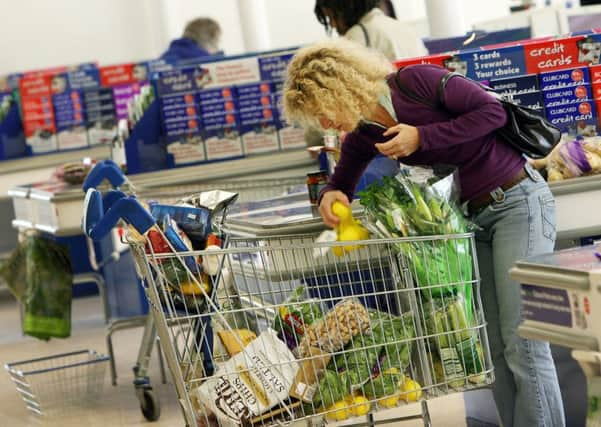UK food prices rising at slowest rate in decade


Ten years of supermarket pricing show food inflation has been pegged back dramatically since the two German retailers, known for their cut-price established a foothold in the UK.
Between 2005 and 2010 - when the ‘big four’ supermarkets of Tesco, Asda, Sainsbury’s and Morrisons increased their dominance - the 20 most popular branded groceries rose by £7.82 or 38 per cent.
Advertisement
Hide AdAdvertisement
Hide AdBut over the next five years, prices rose by the much lower amount of £3.43 or 12.16 per cent. The increase coincided with a change in attitude to German discounters Aldi and Lidl, which more than doubled customer numbers in the past five years at the expense of the bigger stores.
A rise in the number of middle class shoppers flocking to the cut price stores for European produce such as meats and cheeses amid the global recession has helped boost footfall at the two discount retailers, which now account for almost £1 of every £10 spent on groceries in the UK.
The major supermarkets have been forced to introduce price match schemes in a bid to compete against Aldi and Lidl. Morrisons became the first major supermarket in include Aldi and Ldil in its price match scheme, which sees customers given additional points if their comparable shop would have been cheaper elsewhere.
Martin Isark, founder of the price tracing mobile app Can I Eat It? said: “The big supermarkets have been forced to cut prices by the rise of Aldi and Lidl. It shows competition works. And the big names are going to have to continue trimming prices if they are to stop more and more of their shoppers moving to Aldi and Lidl.”
From 2005 to 2015, the price of the top 20 branded groceries have gone up £11.25 from £20.37 to £31.62 - a rise of 55.22 per cent.
Between February 2005 and 2010, the big four’s market share grew from 74.14 per cent to 77.2 per cent, according to market analysts Kantar.
Meanwhile, Aldi and Lidl’s share went from 3.3 per cent to 4.1 per cent in that time.
The big four’s share remained at around 77 per cent until January 2012, then began to fall. Latest figures show the share enjoyed by the four is now down to 72.8 per cent.
Advertisement
Hide AdAdvertisement
Hide AdKantar figures to the end of May reveal that Aldi and Lidl have a combined share of 9.3 per cent - at 5.4 per cent and 3.9 per cent respectively. The figure is believed to be slightly higher in Scotland.